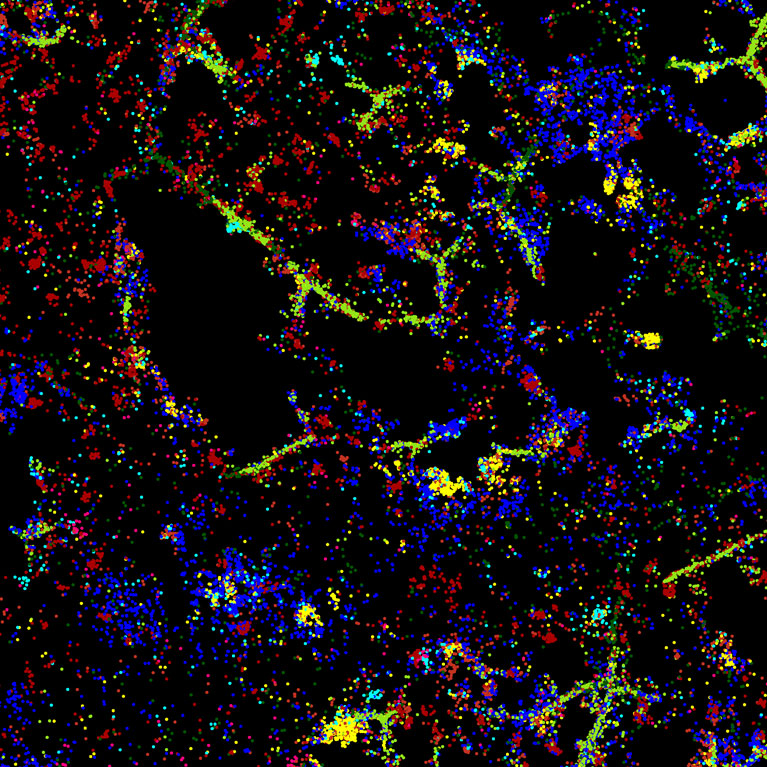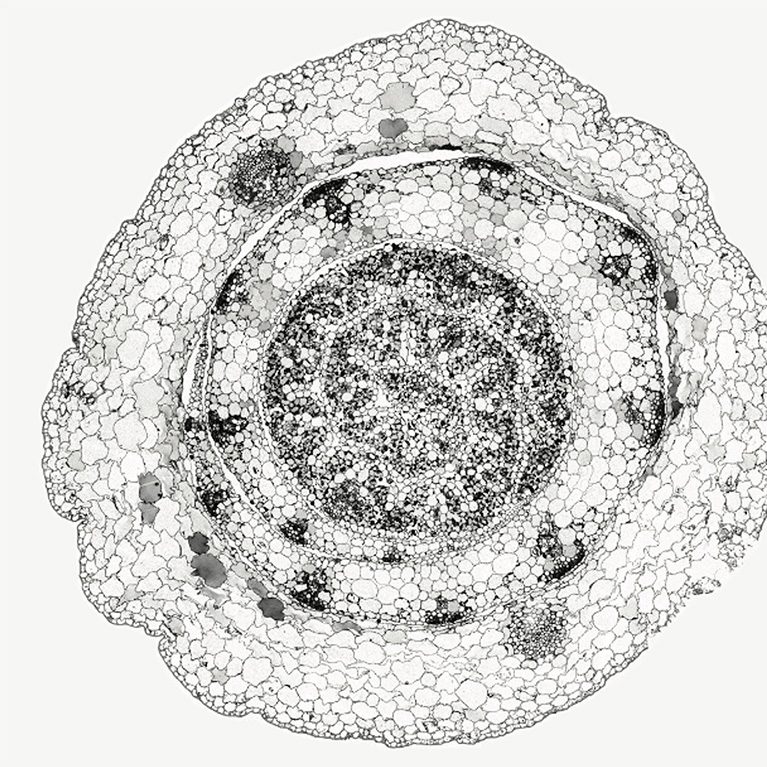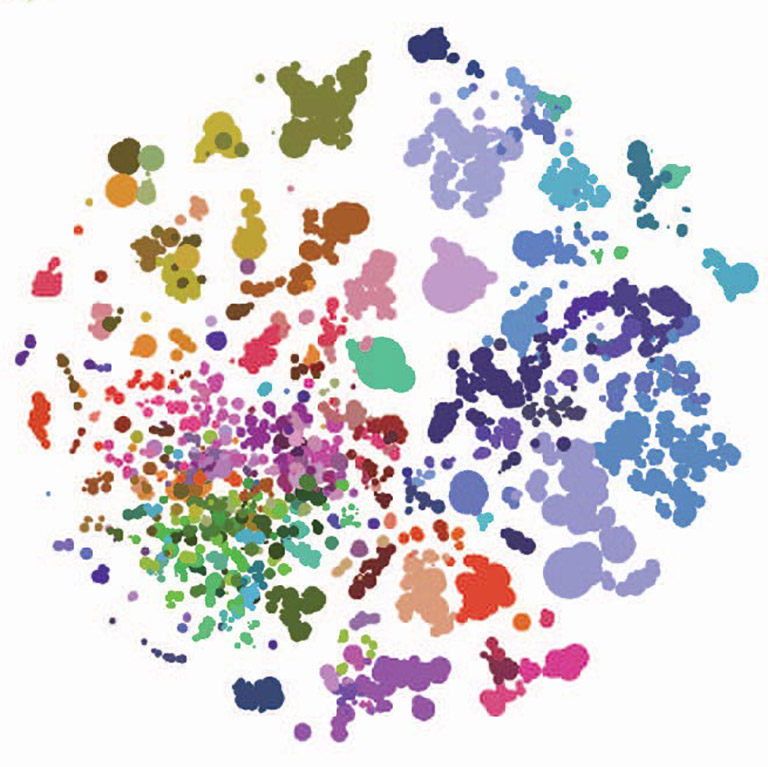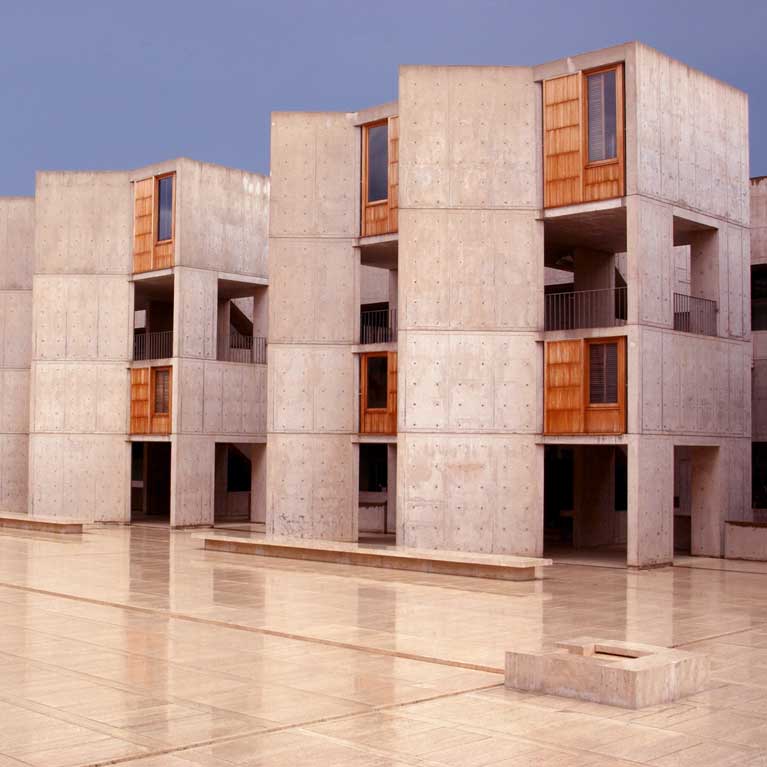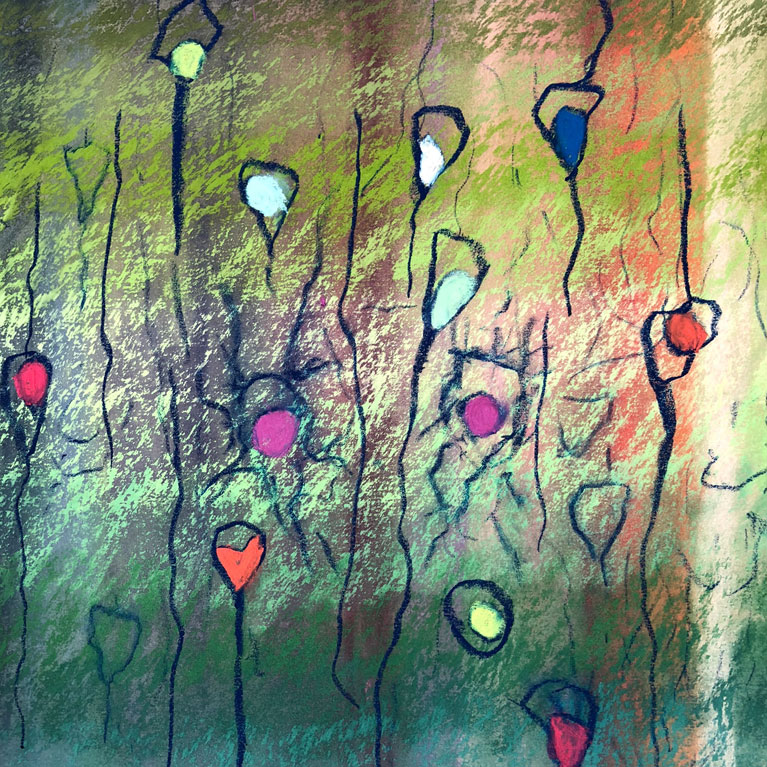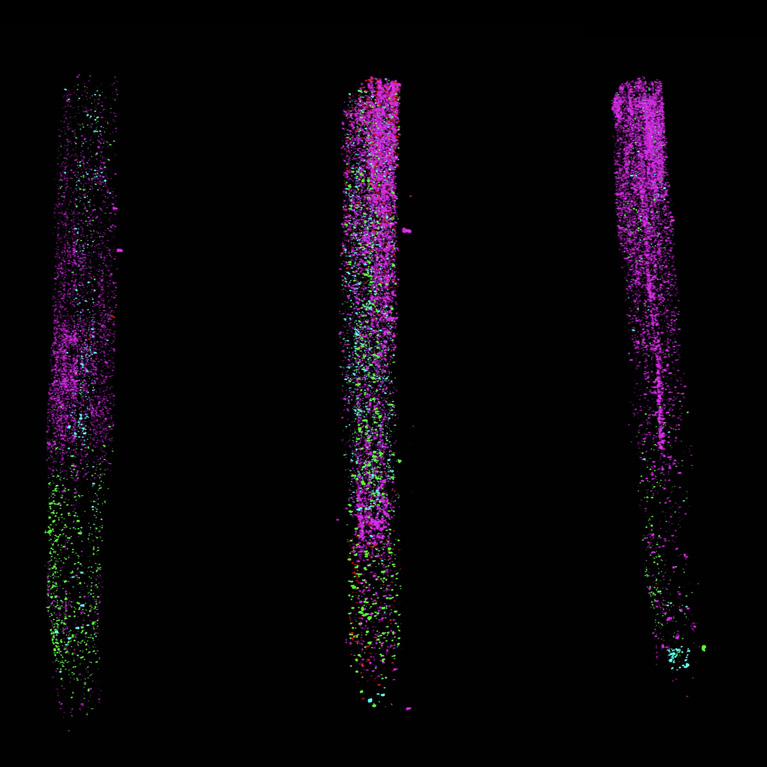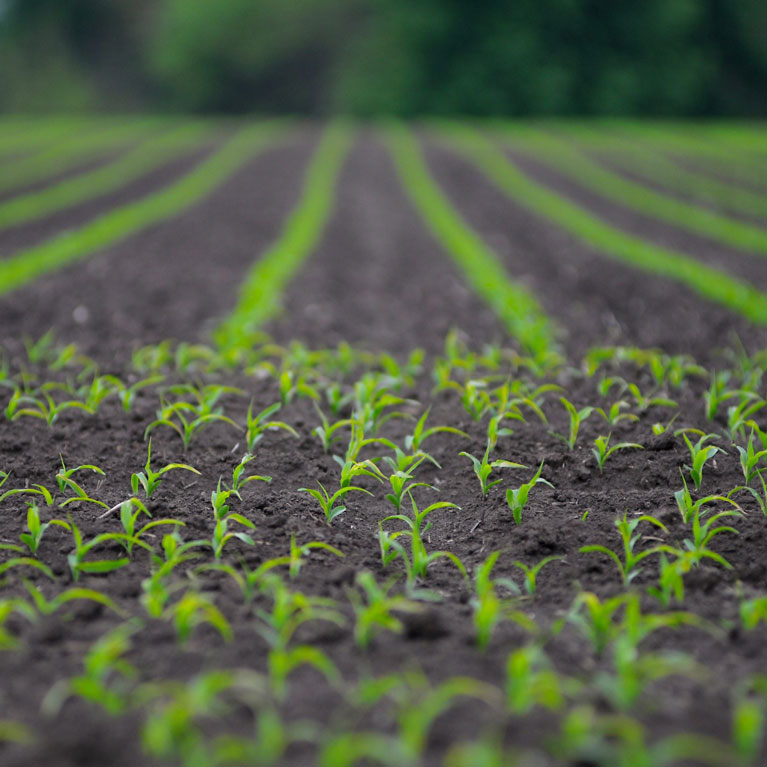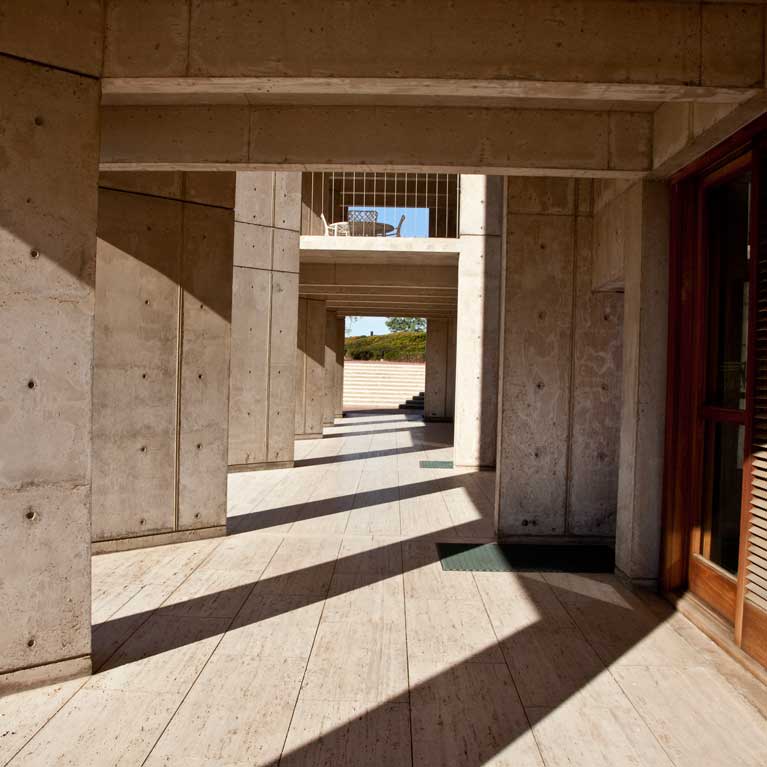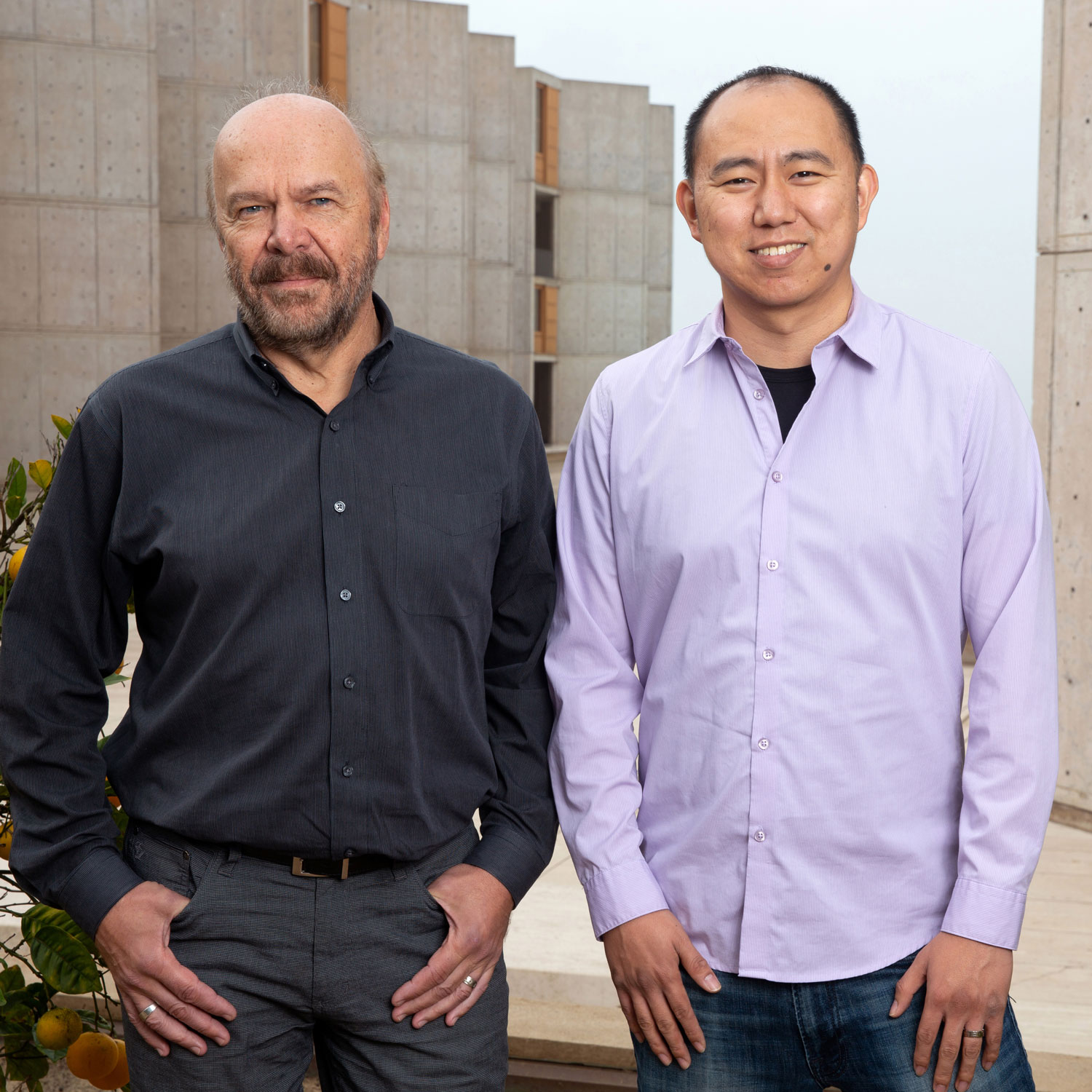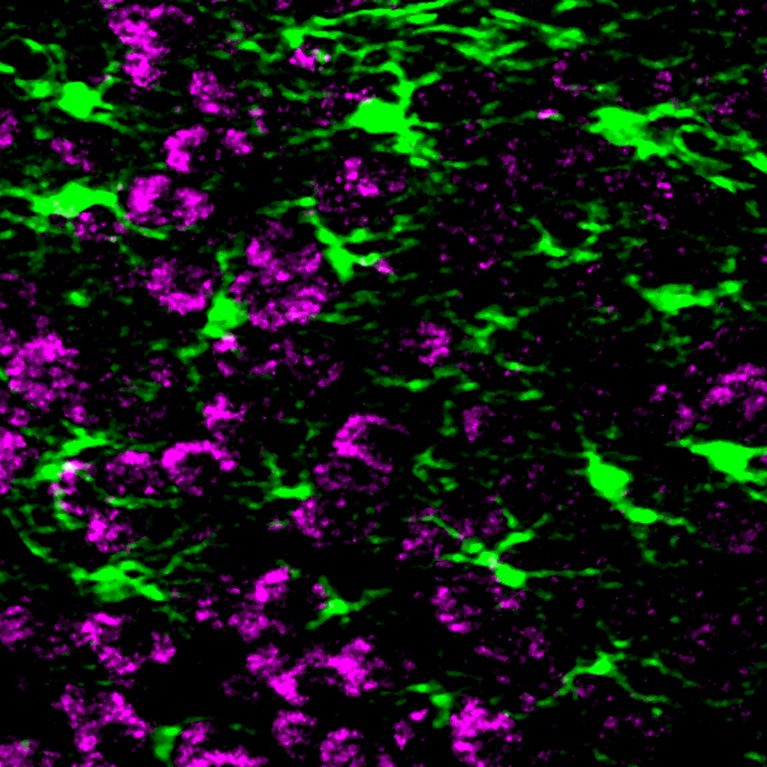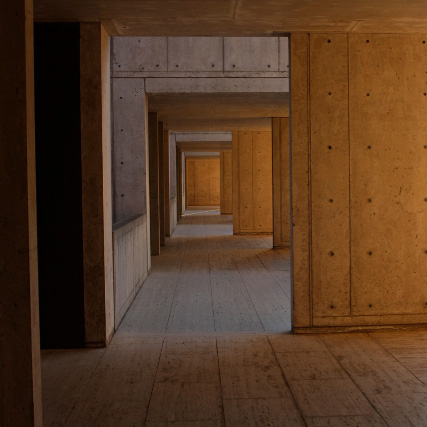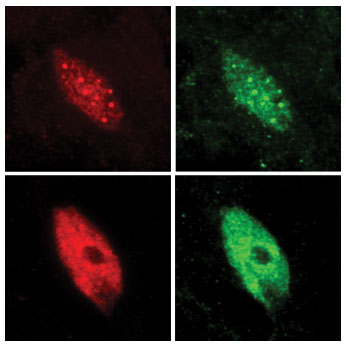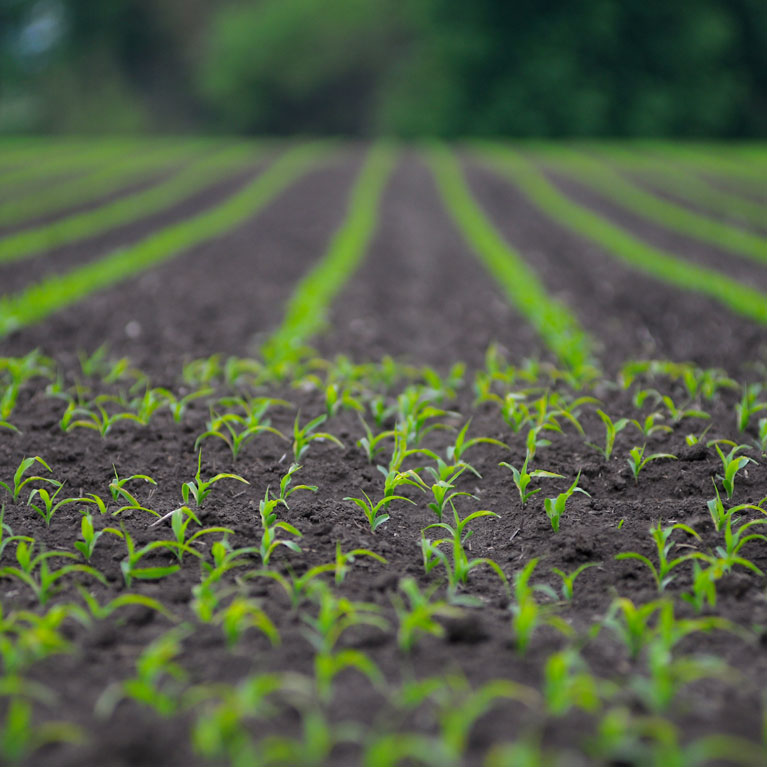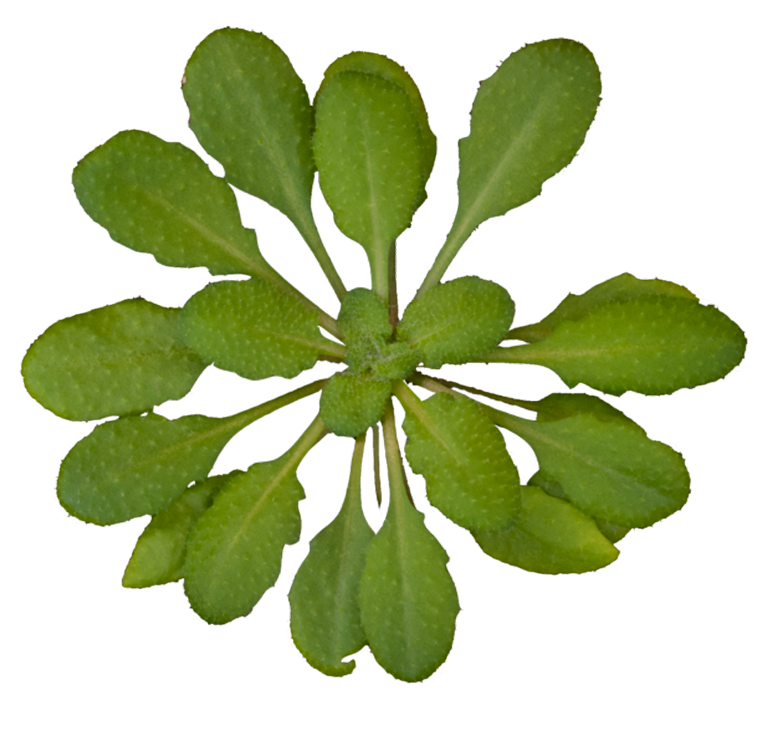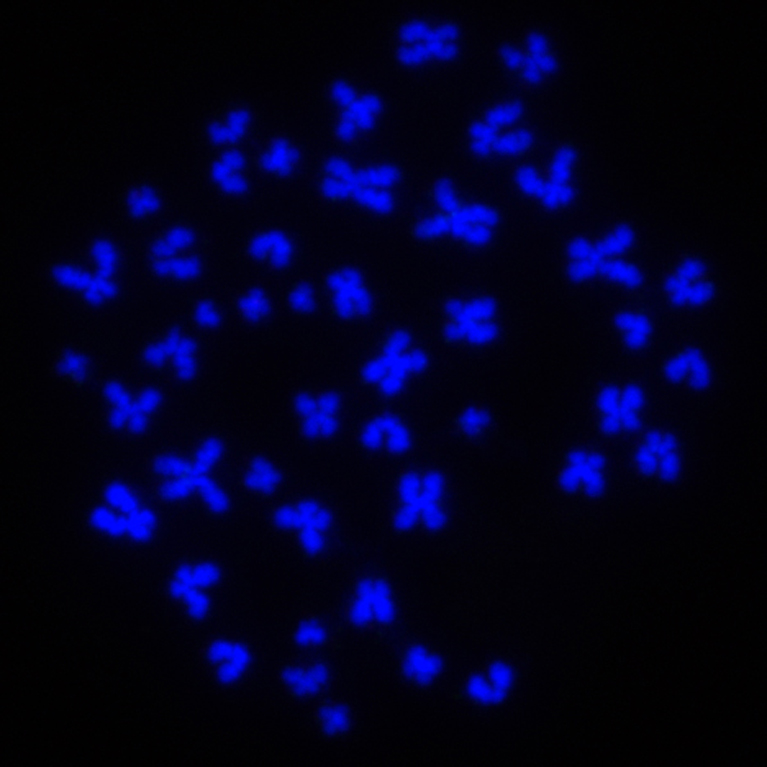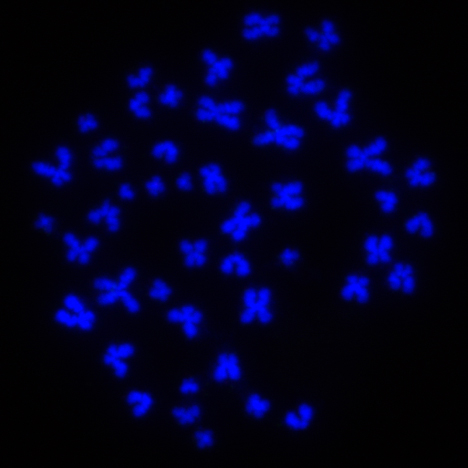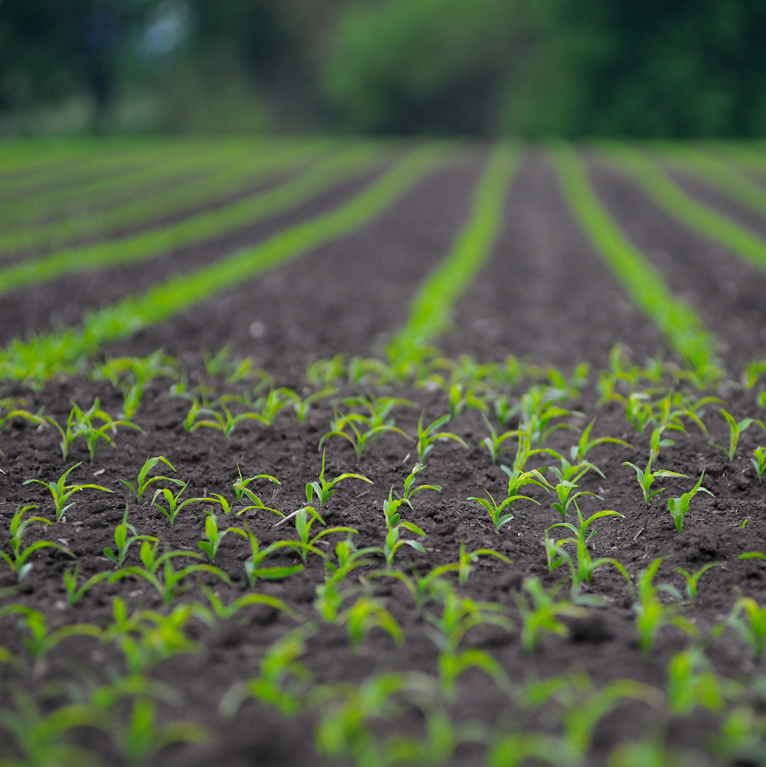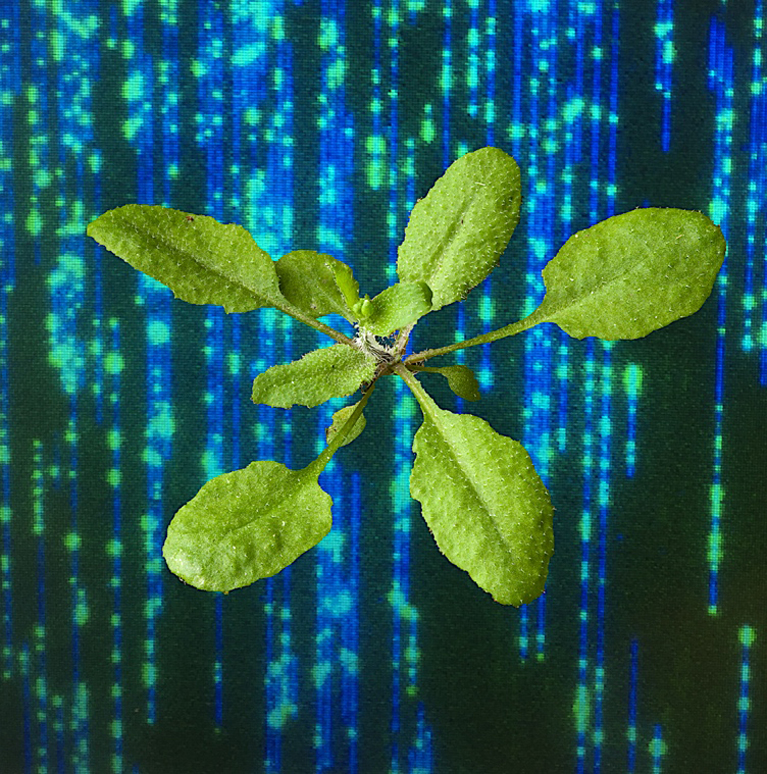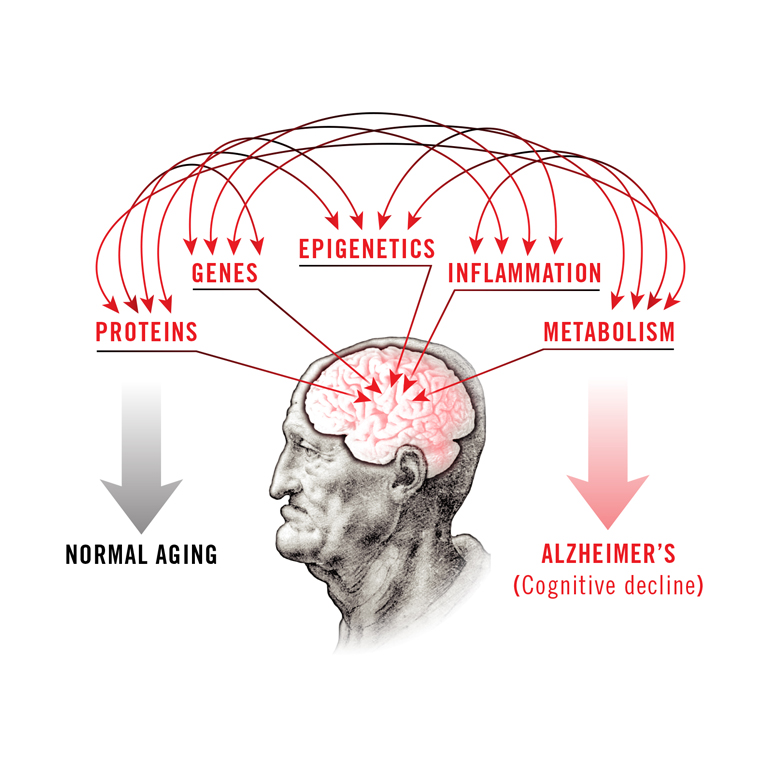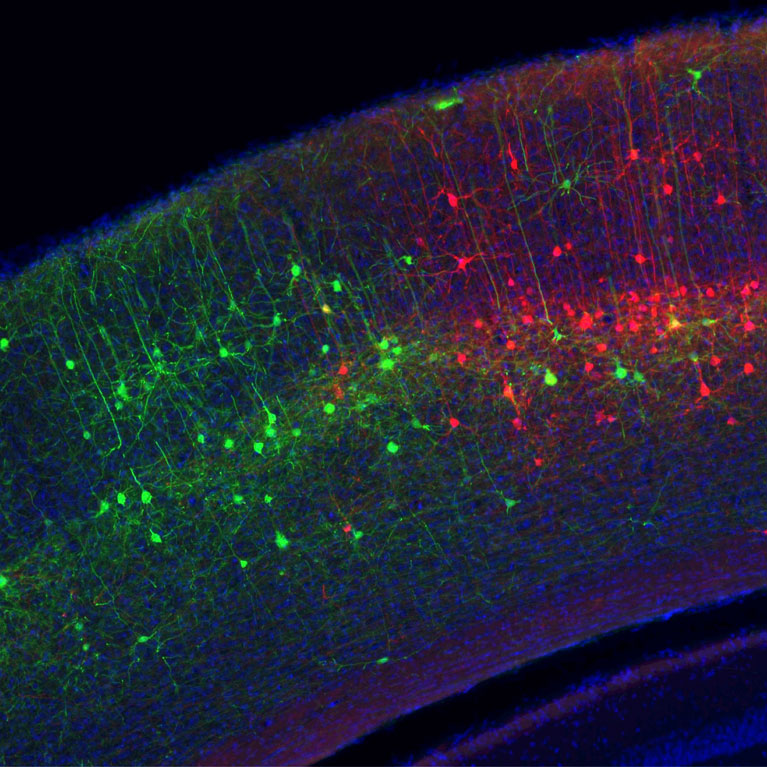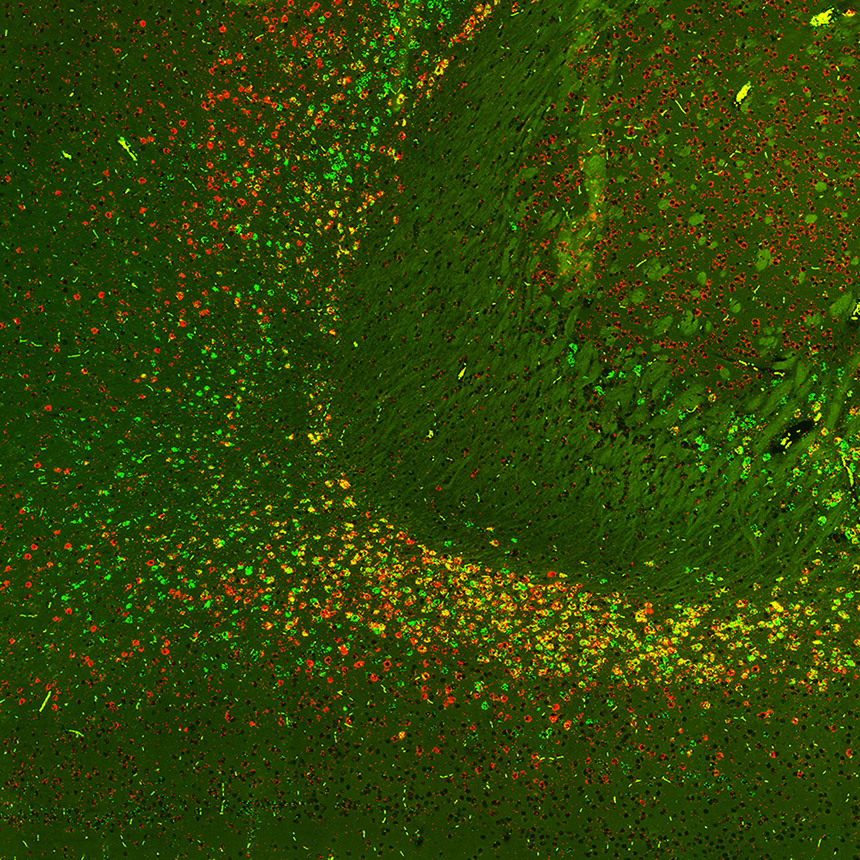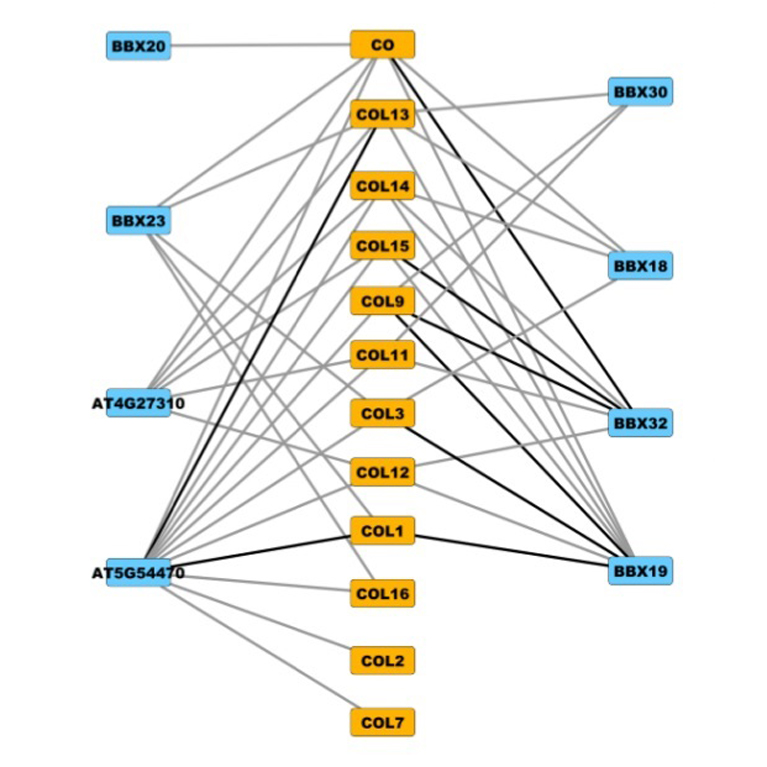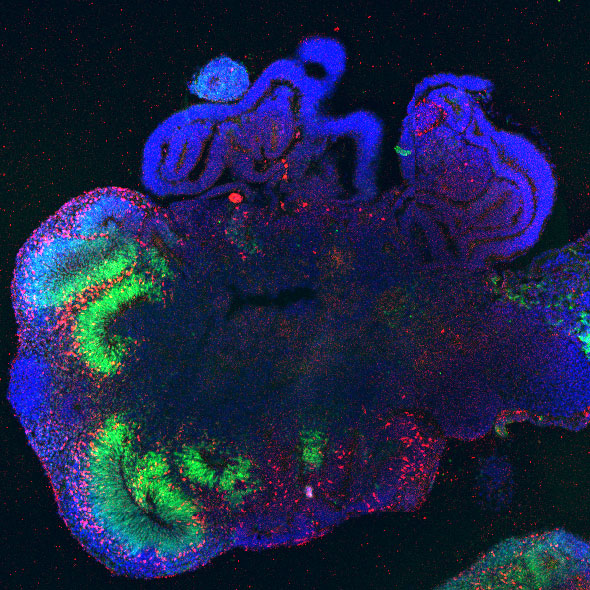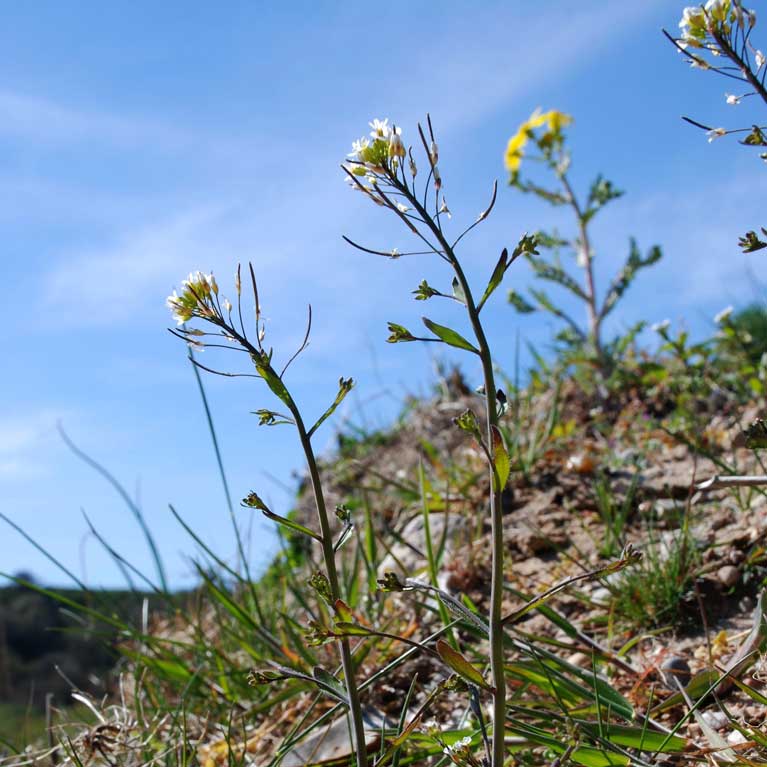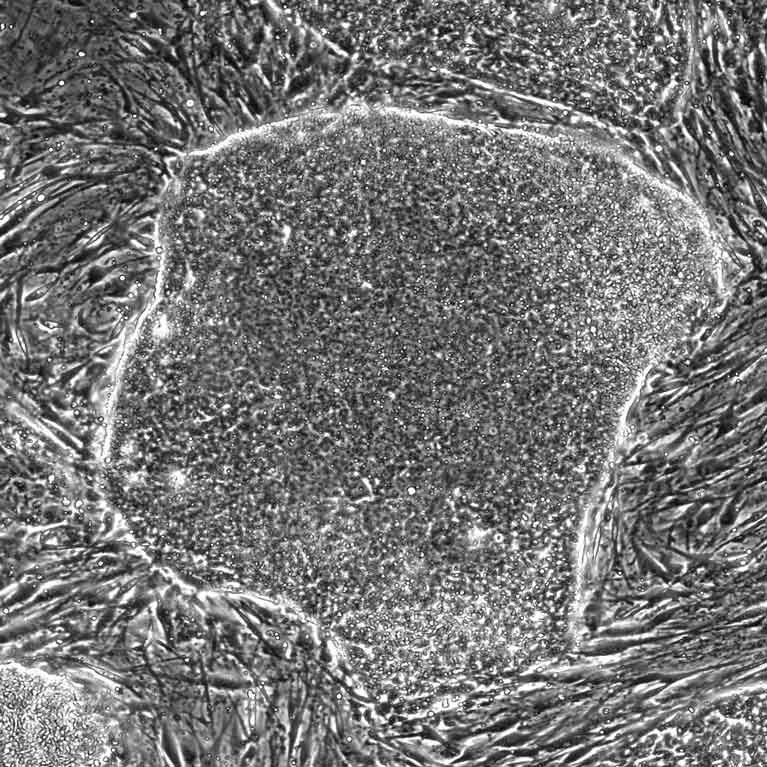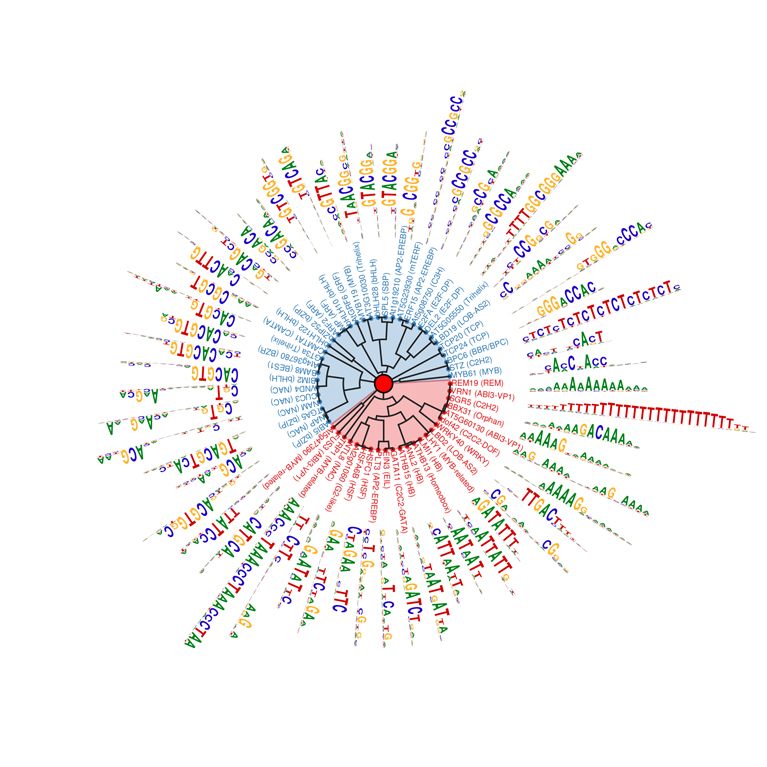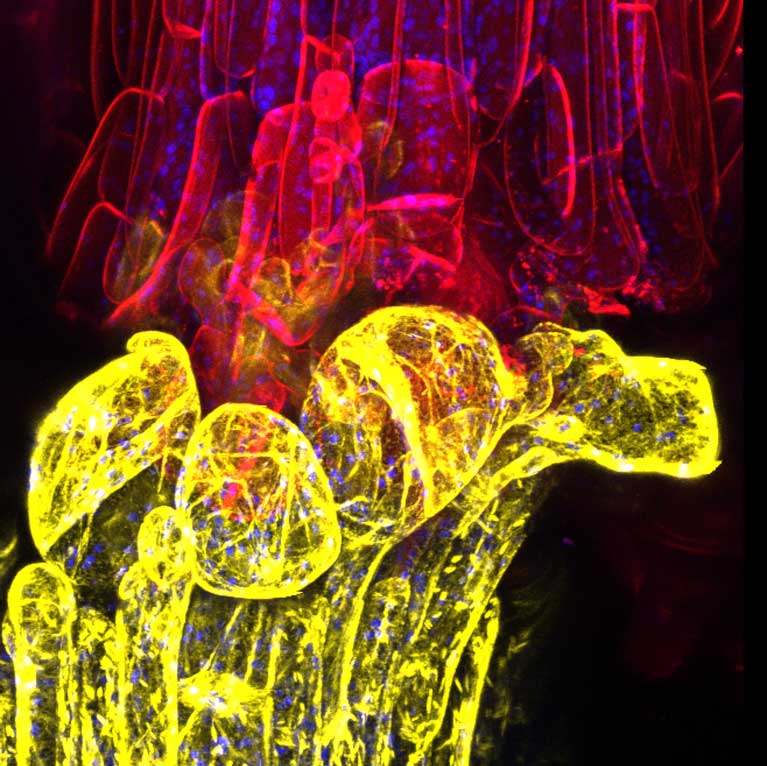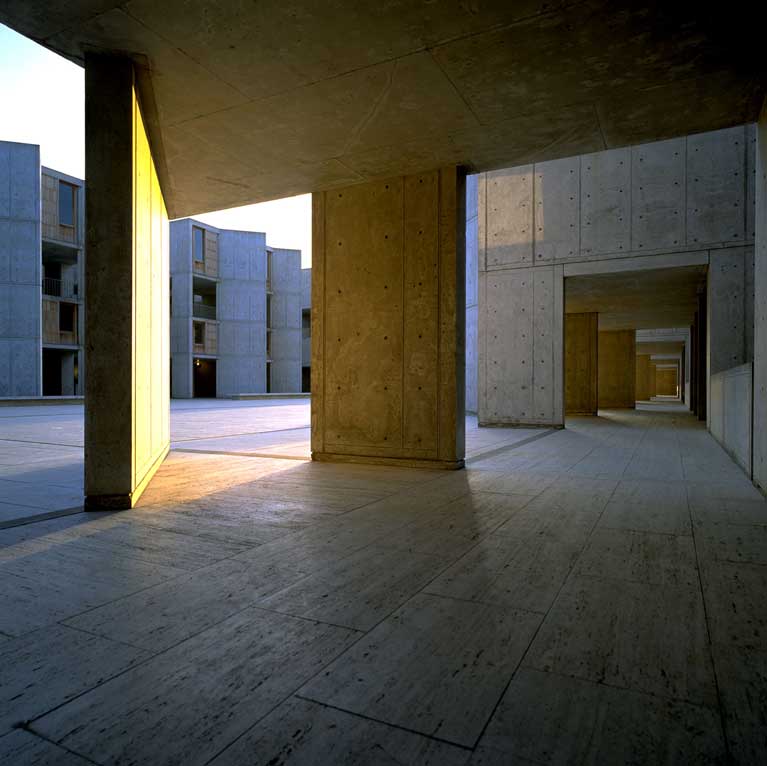Lab News Releases
Plant cells gain immune capabilities when it’s time to fight disease
LA JOLLA—Human bodies defend themselves using a diverse population of immune cells that circulate from one organ to another, responding to everything from cuts to colds to cancer. But plants don’t have this luxury. Because plant cells are immobile, each individual cell is forced to manage its own immunity in addition to its many other responsibilities, like turning sunlight into energy or using that energy to grow. How these multitasking cells accomplish it all—detecting threats, communicating those threats, and responding effectively—has remained unclear.
Superior photosynthesis abilities of some plants could hold key to climate-resilient crops
LA JOLLA—More than 3 billion years ago, on an Earth entirely covered with water, photosynthesis first evolved in little ancient bacteria. In the following many millions of years, those bacteria evolved into plants, optimizing themselves along the way for various environmental changes. This evolution was punctuated around 30 million years ago with the emergence of a newer, better way to photosynthesize. While plants like rice continued using an old form of photosynthesis known as C3, others like corn and sorghum developed a newer and more efficient version called C4.
Seven Salk scientists named among most highly cited researchers in the world
LA JOLLA—Salk Professors Joseph Ecker, Ronald Evans, Rusty Gage, Satchidananda Panda, Reuben Shaw, and Kay Tye, as well as research assistant Joseph Nery, have all been named to the Highly Cited Researchers list by Clarivate. The 2024 list includes 6,636 researchers from 59 countries who have demonstrated “significant and broad influence in their fields of research,” as reflected by their publication of multiple papers over the past decade that rank in the top 1% by citations for their fields.
Scientists create first map of DNA modification in the developing human brain
LA JOLLA—A new study has provided an unprecedented look at how gene regulation evolves during human brain development, showing how the 3D structure of chromatin—DNA and proteins—plays a critical role. This work offers new insights into how early brain development shapes lifelong mental health.
Salk teams assemble first full epigenomic cell atlas of the mouse brain
LA JOLLA—Salk Institute researchers, as part of a worldwide initiative to revolutionize scientists’ understanding of the brain, analyzed more than 2 million brain cells from mice to assemble the most complete atlas ever of the mouse brain. Their work, published December 13, 2023 in a special issue of Nature, not only details the thousands of cell types present in the brain but also how those cells connect and the genes and regulatory programs that are active in each cell.
Seven Salk scientists named among best and most highly cited researchers in the world
LA JOLLA—Salk Professors Joseph Ecker, Ronald Evans, Satchidananda Panda, Rusty Gage, and Kay Tye, as well as Assistant Professor Jesse Dixon, have been named to the Highly Cited Researchers list by Clarivate. The 2023 list includes 6,849 researchers from 67 countries, all of whom demonstrate “significant and broad influence reflected in their publication of multiple highly cited papers over the last decade.” This is the ninth consecutive year that Ecker and Gage have made the list. Joseph Nery, a research assistant II in the Ecker lab, was also included on the list.
“A new era in brain science”: Salk researchers unveil human brain cell atlas
LA JOLLA—Salk Institute researchers, as part of a larger collaboration with research teams around the world, analyzed more than half a million brain cells from three human brains to assemble an atlas of hundreds of cell types that make up a human brain in unprecedented detail.
Seeing the insides of plants in 3D
LA JOLLA—The cellular life inside a plant is as vibrant as the blossom. In each plant tissue—from root tip to leaf tip—there are hundreds of cell types that relay information about functional needs and environmental changes. Now, a new technology developed by Salk scientists can capture this internal plant world at an unprecedented resolution, opening the door for understanding how plants respond to a changing climate and leading to more resilient crops.
Salk Institute receives $50 million from Hess Corporation to mitigate climate change through plant science
LA JOLLA—Hess Corporation is donating $50 million to the Salk Institute’s Campaign for Discovery: The Power of Science, a seven-year, $750 million comprehensive fundraising campaign to attract the people and build the technology and space necessary to accelerate critical research. This gift will specifically advance Salk’s Harnessing Plants Initiative—an effort to mitigate climate change by optimizing plants and supporting wetlands to increase capture of excess atmospheric carbon—and provide vital infrastructure for this work by establishing the new Hess Center for Plant Science.
Ten Salk professors named among best and most highly cited researchers in the world
LA JOLLA—Salk Professors Joseph Ecker, Ronald Evans, Rusty Gage, Christian Metallo, Satchidananda Panda, Reuben Shaw, and Kay Tye, along with Assistant Professor Jesse Dixon, have been named to the Highly Cited Researchers list by Clarivate. This year’s list includes 6,938 researchers from 69 countries and identifies researchers who demonstrate “significant influence in their chosen field or fields through the publication of multiple highly cited papers.” Ecker and Gage have been named to this list every year since 2014, when the regular annual rankings began. Joseph Nery, a research assistant II in the Ecker lab, was also included on the list.
Salk Institute to lead $126 million effort to map the aging human brain
LA JOLLA—With a five-year, $126 million grant from the National Institutes of Health (NIH), a team led by Salk Institute scientists has launched a new Center for Multiomic Human Brain Cell Atlas. Part of the NIH’s Brain Research Through Advancing Innovative Neurotechnologies® (BRAIN) Initiative, the project aims to describe the cells that make up the human brain in unprecedented molecular detail, classify brain cells into more precise subtypes, and pinpoint the location of each cell in the brain. What’s more, the team will track how these features change from early to late life.
New technology enables unprecedented glimpse inside single brain cells
LA JOLLA—Salk Institute researchers have developed a new genomic technology to simultaneously analyze the DNA, RNA and chromatin—a combination of DNA and protein—from a single cell. The method, which took five years to develop, is an important step forward for large collaborations where multiple teams are working simultaneously to classify thousands of new cell types. The new technology, published in Cell Genomics on March 9, 2022, will help streamline analyses.
Six Salk professors named among most highly cited researchers in the world
LA JOLLA—Salk Professors Joanne Chory, Joseph Ecker, Rusty Gage, Satchidananda Panda, Reuben Shaw and Kay Tye have been named to the Highly Cited Researchers list by Clarivate. The list identifies researchers who demonstrate “significant influence in their chosen field or fields through the publication of multiple highly cited papers.” Chory, Ecker and Gage have been named to this list every year since 2014, when the regular annual rankings began. This is Tye’s fifth, Shaw’s third and Panda’s first time receiving the designation. Additionally, Ecker appeared in two separate categories: “plant and animal science” and “molecular biology and genetics” and is one of 3.4 percent of researchers selected in two fields. Joseph Nery, a research assistant II in the Ecker lab, was also included on the list.
Call-and-response circuit tells neurons when to grow synapses
LA JOLLA—Brain cells called astrocytes play a key role in helping neurons develop and function properly, but there’s still a lot scientists don’t understand about how astrocytes perform these important jobs. Now, a team of scientists led by Associate Professor Nicola Allen has found one way that neurons and astrocytes work together to form healthy connections called synapses. This insight into normal astrocyte function could help scientists better understand disorders linked to problems with neuronal development, including autism spectrum disorders. The study was published September 8, 2021, in the journal eLife.
Salk teams advance efforts to treat, prevent and cure brain disorders, via NIH brain atlas
LA JOLLA—It takes billions of cells to make a human brain, and scientists have long struggled to map this complex network of neurons. Now, dozens of research teams around the country, led in part by Salk scientists, have made inroads into creating an atlas of the mouse brain as a first step toward a human brain atlas.
Salk Institute among cross-collaborative teams gifted $220 million by Wu Tsai Human Performance Alliance
LA JOLLA—A Salk Institute team led by Professor Satchin Panda, along with teams from five other organizations, have been awarded a total of $220 million by the Joe and Clara Tsai Foundation’s Human Performance Alliance, whose philanthropic investment aims to transform human health on a global scale through the discovery and translation of the biological principles underlying human performance.
How plants quickly adapt to shifting environmental conditions
LA JOLLA—Scientists—and gardeners—have long known that plants grow taller and flower sooner when they are shaded by close-growing neighbors. Now, for the first time, researchers at the Salk Institute have shown the detailed inner workings of this process.
Five Salk professors named among most highly cited researchers in the world
LA JOLLA—Salk Professors Joanne Chory, Joseph Ecker, Rusty Gage, Reuben Shaw and Kay Tye have been named to the Highly Cited Researchers list by Clarivate. The list identifies researchers who demonstrate “significant influence in their chosen field or fields through the publication of multiple highly cited papers.” Professors Chory, Ecker and Gage have been named to this list every year since 2014, when the regular annual rankings began. This is Professor Tye’s fourth consecutive time and Professor Shaw’s second consecutive time receiving the designation. Joseph Nery, a research assistant II in the Ecker lab, was also included on the list.
Salk Institute and Sempra Energy announce project to advance plant-based carbon capture and storage research
SAN DIEGO and LA JOLLA—The Salk Institute and Sempra Energy (NYSE: SRE) today announced a new project to advance plant-based carbon capture and sequestration research, education and implementation to help address the climate crisis. Sempra Energy is donating $2 million to the Salk Institute to help fund the five-year project.
New maps of chemical marks on DNA pinpoint regions relevant to many developmental diseases
LA JOLLA—In research that aims to illuminate the causes of human developmental disorders, Salk scientists have generated 168 new maps of chemical marks on strands of DNA—called methylation—in developing mice.
How plants sound the alarm about danger
LA JOLLA—Just like humans and other animals, plants have hormones. One role of plant hormones is to perceive trouble—whether an insect attack, drought or intense heat or cold—and then signal to the rest of the plant to respond.
The Salk Institute to receive $12.5 million gift from Hess Corporation to accelerate development of plant-based carbon capture and storage
LA JOLLA—Salk’s Harnessing Plants Initiative (HPI) will receive a $12.5 million gift from Hess Corporation (NYSE: HES) to advance two projects to enhance plants’ natural ability to store carbon and mitigate the effects of climate change: the CRoPS (CO2 Removal on a Planetary Scale) program and the Coastal Plant Restoration (CPR) program. These projects build on the Salk discovery of a crucial gene that will help the team develop plants with larger root systems capable of absorbing and storing potentially billions of tons of carbon per year from the atmosphere.
Eight Salk professors named among most highly cited researchers in the world
LA JOLLA—Salk Professors Joanne Chory, Joseph Ecker, Ronald Evans, Rusty Gage, Juan Carlos Izpisua Belmonte, Terrence Sejnowski, Reuben Shaw and Kay Tye have been named to the Highly Cited Researchers list by Clarivate Analytics. The list selects researchers for demonstrating “significant and broad influence” reflected by the production of multiple highly cited papers that rank in the top 1 percent by citations for field and year.
Salk scientists receive $12.9 million from NIH BRAIN Initiative
LA JOLLA—Salk Institute scientists Nicola Allen, Eiman Azim, Margarita Behrens, and Joseph Ecker have been named recipients in the 2019 round of grants from the National Institutes of Health (NIH) to better understand the brain.
Salk scientists develop technique to reveal epigenetic features of cells in the brain
LA JOLLA—The brain’s prefrontal cortex, which gives us our ability to solve problems and plan ahead, contains billions of cells. But understanding the large diversity of cell types in this critical region, each with unique genetic and molecular properties, has been challenging.
Salk scientists Margarita Behrens and Joseph Ecker to receive over $1.6 million from Chan Zuckerberg Initiative to expand Human Cell Atlas
LA JOLLA–Joseph Ecker, professor and director of Salk’s Genomic Analysis Laboratory and Margarita Behrens, a research professor in Salk’s Computational Neurobiology Laboratory, will receive over $1.6 million over three years as part of a Seed Network Grant from the Chan Zuckerberg Initiative (CZI).
New computational tool lets researchers identify cells based on their chromosome shape
LA JOLLA—In the nucleus of every living cell, long strands of DNA are tightly folded into compact chromosomes. Now, thanks to a new computational approach developed at the Salk Institute, researchers can use the architecture of these chromosome folds to differentiate between types of cells. The information about each cell’s chromosome structure will give scientists a better understanding of how interactions between different regions of DNA play a role in health and disease. The study was published in the Proceedings of the National Academy of Sciences the week of July 8, 2019.
Salk Institute initiative to receive more than $35 million to fight climate change
LA JOLLA—The Salk Institute’s Harnessing Plants Initiative to combat climate change using plants, led by Professor Joanne Chory, executive director of the Harnessing Plants Initiative, will receive funding of more than $35 million from over 10 individuals and organizations through The Audacious Project, a highly competitive program housed at TED, the nonprofit devoted to ideas worth spreading. The collective commitments represent one of the largest gifts to a single project in the Institute’s history.
New technologies enable better-than-ever details on genetically modified plants
LA JOLLA—Salk researchers have mapped the genomes and epigenomes of genetically modified plant lines with the highest resolution ever to reveal exactly what happens at a molecular level when a piece of foreign DNA is inserted. Their findings, published in the journal PLOS Genetics on January 18, 2019, elucidate the routine methods used to modify plants, and offer new ways to more effectively minimize potential off-target effects.
Research confirms nerve cells made from skin cells are a valid lab model for studying disease
LA JOLLA—The incidence of some neurological diseases—especially those related to aging, such as Alzheimer’s and Parkinson’s diseases—is increasing. To better understand these conditions and evaluate potential new treatments, researchers need accurate models that they can study in the lab.
Trio of Salk scientists named among most highly cited researchers in the world
LA JOLLA—Salk Professors Joanne Chory, Joseph Ecker and Rusty Gage have once again been named to the Highly Cited Researchers list by Clarivate Analytics (formerly Thomson Reuters). The list selects researchers for “exceptional research performance” demonstrated by the production of multiple highly cited papers that rank in the top 1 percent by citations for field and year. Additionally, among the 4,058 researchers named as Highly Cited, Ecker is one of 194 researchers appearing in two separate categories: “plant and animal science,” as well as “molecular biology and genetics.”
Salk awarded $19.2 million by the American Heart Association-Allen Initiative to study Alzheimer’s and aging in the brain
LA JOLLA—A team of Salk Institute researchers led by President Rusty Gage has been awarded $19.2 million over eight years by the American Heart Association-Allen Initiative in Brain Health and Cognitive Impairment to investigate mechanisms underlying Alzheimer’s disease and aging-related cognitive decline and uncover new therapies. This bold venture will comprehensively analyze interactions between five areas key to brain health: proteins, genes, metabolism, inflammation and epigenetics.
Salk scientists lead $25 million initiative to develop atlas of brain cell types
LA JOLLA—Salk Institute scientists will lead a multimillion-dollar, five-year initiative to revolutionize our understanding of the human brain by systematically identifying and cataloging cell types across the mammalian brain, the National Institutes of Health has announced. The effort, which is part of the Brain Research through Advancing Innovative Neurotechnologies (BRAIN) Initiative®, will be co-led by Salk Professors Joseph Ecker and Ed Callaway. Researchers from USC and UC San Diego will also participate in the collaboration.
New kinds of brain cells revealed
LA JOLLA—Under a microscope, it can be hard to tell the difference between any two neurons, the brain cells that store and process information. So scientists have turned to molecular methods to try to identify groups of neurons with different functions.
New method to rapidly map the “social networks” of proteins
LA JOLLA—Salk scientists have developed a new high-throughput technique to determine which proteins in a cell interact with each other. Mapping this network of interactions, or “interactome,” has been slow going in the past because the number of interactions that could be tested at once was limited. The new approach, published June 26 in Nature Methods, lets researchers test millions of relationships between thousands of proteins in a single experiment.
Finding our way around DNA
LA JOLLA—Most of us would be lost without Google maps or similar route-guidance technologies. And when those mapping tools include additional data about traffic or weather, we can navigate even more effectively. For scientists who navigate the mammalian genome to better understand genetic causes of disease, combining various types of data sets makes finding their way easier, too.
Building a better brain
LA JOLLA—When you build models, whether ships or cars, you want them to be as much like the real deal as possible. This quality is even more crucial for building model organs, because disease treatments developed from these models have to be safe and effective for humans. Now, scientists at the Salk Institute have studied a 3D “mini-brain” grown from human stem cells and found it to be structurally and functionally more similar to real brains than the 2D models in widespread use. The discovery, appearing in the December 20, 2016, issue of Cell Reports, indicates that the new model could better help scientists understand brain development as well as neurological diseases like Alzheimer’s or schizophrenia.
New technique could increase success of infertility treatment
PORTLAND, Ore, and LA JOLLA, Calif.—Families struggling with infertility or a genetic predisposition for debilitating mitochondrial diseases may someday benefit from a new breakthrough led by scientists at OHSU and the Salk Institute for Biological Studies.
Molecular conductors help plants respond to drought
LA JOLLA—We can tell when plants need water: their leaves droop and they start to look dry. But what’s happening on a molecular level?
Gauging stem cells for regenerative medicine
LA JOLLA—Salk scientists and colleagues have proposed new molecular criteria for judging just how close any line of laboratory-generated stem cells comes to mimicking embryonic cells seen in the very earliest stages of human development, known as naïve stem cells. The tests found that no current protocols lead to truly naïve stem cells, but the guidelines may help researchers achieve that goal by pointing out where each current method falls short. Generating naïve stem cells would be a boon to both basic research and to medical applications of stem cells, such as growing tissue for organ replacement.
Salk researchers chart landscape of genetic and epigenetic regulation in plants
LA JOLLA—A new technique developed by Salk Institute scientists for rapidly mapping regions of DNA targeted by regulatory proteins could give scientists insight into what makes some plants drought tolerant or disease resistant, among other traits.
Three Salk scientists make Thomson Reuters’ list of “The World’s Most Influential Scientific Minds”
Salk Institute scientists Joanne Chory, Joseph Ecker and Rusty Gage have been named to the 2015 list of “The World’s Most Influential Scientific Minds” by Thomson Reuters.
Grafted plants’ genomes can communicate with each other
LA JOLLA—Agricultural grafting dates back nearly 3,000 years. By trial and error, people from ancient China to ancient Greece realized that joining a cut branch from one plant onto the stalk of another could improve the quality of crops.
Salk scientists reveal epigenome maps of the human body’s major organs
LA JOLLA–For more than a decade, scientists have had a working map of the human genome, a complete picture of the DNA sequence that encodes human life. But new pages are still being added to that atlas: maps of chemical markers called methyl groups that stud strands of DNA and influence which genes are repressed and when.
Salk scientists Joseph Ecker and Dennis O’Leary elected to American Academy of Arts & Sciences
LA JOLLA–Salk Institute Professors Joseph Ecker and Dennis O’Leary have received the prestigious honor of being elected to the American Academy of Arts and Sciences (AAAS) class of 2015. One of the nation’s most prominent honorary societies, AAAS are among the 197 accomplished leaders from academia, business, public affairs, the humanities and the arts accepted to this year’s class. Its members include winners of the Nobel Prize and Pulitzer Prize; MacArthur and Guggenheim Fellowships; and Grammy, Emmy, Oscar and Tony Awards.
Salk scientists receive $3 million for BRAIN Initiative grant
LA JOLLA—Joseph Ecker, a Salk professor and Howard Hughes Medical Institute investigator, and Margarita Behrens, Salk staff scientist, have been named recipients in the 2014 round of grants from the National Institutes of Health (NIH) through the BRAIN (Brain Research through Advancing Innovative Neurotechnologies) Initiative for leading-edge work in neuroscience. The grant, announced September 30, provides more than $3 million in funding to the Salk scientists over three years.
Some stem cell methods closer to “gold standard” than others
LA JOLLA—Researchers around the world have turned to stem cells, which have the potential to develop into any cell type in the body, for potential regenerative and disease therapeutics.
Salk Institute and Stanford University to lead new $40 million stem cell genomics center
LA JOLLA—The Salk Institute for Biological Studies will join Stanford University in leading a new Center of Excellence in Stem Cell Genomics, created through a $40 million award by California’s stem cell agency, the California Institute for Regenerative Medicine.
Unique epigenomic code identified during human brain development
LA JOLLA,CA—Changes in the epigenome, including chemical modifications of DNA, can act as an extra layer of information in the genome, and are thought to play a role in learning and memory, as well as in age-related cognitive decline. The results of a new study by scientists at the Salk Institute for Biological Studies show that the landscape of DNA methylation, a particular type of epigenomic modification, is highly dynamic in brain cells during the transition from birth to adulthood, helping to understand how information in the genomes of cells in the brain is controlled from fetal development to adulthood. The brain is much more complex than all other organs in the body and this discovery opens the door to a deeper understanding of how the intricate patterns of connectivity in the brain are formed.
Scientists identify thousands of plant genes activated by ethylene gas
LA JOLLA, CA—It’s common wisdom that one rotten apple in a barrel spoils all the other apples, and that an apple ripens a green banana if they are put together in a paper bag. Ways to ripen, or spoil, fruit have been known for thousands of years-as the Bible can attest-but now the genes underlying these phenomena of nature have been revealed.
Hidden layer of genome unveils how plants may adapt to environments throughout the world
LA JOLLA, CA—Scientists at the Salk Institute for Biological Studies have identified patterns of epigenomic diversity that not only allow plants to adapt to various environments, but could also benefit crop production and the study of human diseases.
More than 3,000 epigenetic switches control daily liver cycles
LA JOLLA, CA—When it’s dark, and we start to fall asleep, most of us think we’re tired because our bodies need rest. Yet circadian rhythms affect our bodies not just on a global scale, but at the level of individual organs, and even genes.
Two more Salk scientists elected as AAAS Fellows
LA JOLLA,CA—Salk faculty members Joseph Ecker and Joseph Noel have been named as 2012 Fellows by the American Association for the Advancement of Science (AAAS), the world’s largest general scientific society and the publisher of the journal Science. Election as an AAAS Fellow is among the highest honors in American science and scholars are selected by their peers for “scientifically or socially distinguished efforts to advance science or its applications,” according to election administrators.
Discovery may help protect crops from stressors
LA JOLLA, CA—Scientists at the Salk Institute for Biological Studies have discovered a key genetic switch by which plants control their response to ethylene gas, a natural plant hormone best known for its ability to ripen fruit, but which, under stress conditions, can cause wilted leaves, premature aging and spoilage from over-ripening. The findings, published August 30 in Science magazine, may hold the key to manipulating plants’ ethylene on/off switch, allowing them to balance between drought resistance and growth and, therefore, decrease crop losses from drought conditions.
Planting the seeds of defense
LA JOLLA, CA—It was long thought that methylation, a crucial part of normal organism development, was a static modification of DNA that could not be altered by environmental conditions. New findings by researchers at the Salk Institute for Biological Studies, however, suggest that the DNA of organisms exposed to stress undergo changes in DNA methylation patterns that alter how genes are regulated.
Are genes our destiny?
LA JOLLA, CA—A “hidden” code linked to the DNA of plants allows them to develop and pass down new biological traits far more rapidly than previously thought, according to the findings of a groundbreaking study by researchers at the Salk Institute for Biological Studies.
Scientists take a giant step for people – with plants!
La Jolla—Science usually progresses in small steps, but on rare occasions, a new combination of research expertise and cutting-edge technology produces a ‘great leap forward.’ An international team of scientists, whose senior investigators include Salk Institute plant biologist Joseph Ecker, report one such leap in the July 29, 2011 issue of Science. They describe their mapping and early analyses of thousands of protein-to-protein interactions within the cells of Arabidopsis thaliana -a variety of mustard plant that is to plant biology what the lab mouse is to human biology.
Salk scientist Joseph Ecker, appointed as Howard Hughes Medical Institute and Gordon and Betty Moore Foundation Investigator
La Jolla—Plant biologist Joseph R. Ecker, Ph.D., professor and director of the Genomic Analysis Laboratory at the Salk Institute for Biological Studies, has been selected for a prestigious position as an investigator of the Howard Hughes Medical Institute (HHMI) and the Gordon and Betty Moore Foundation (GBMF).
Cell reprogramming leaves a “footprint” behind
LA JOLLA, CA—Reprogramming adult cells to recapture their youthful “can-do-it-all” attitude appears to leave an indelible mark, found researchers at the Salk Institute for Biological Studies. When the team, led by Joseph Ecker, PhD., a professor in the Genomic Analysis Laboratory, scoured the epigenomes of so-called induced pluripotent stem cells base by base, they found a consistent pattern of reprogramming errors.
What drives our genes? Salk researchers map the first complete human epigenome
LA JOLLA, CA—Although the human genome sequence faithfully lists (almost) every single DNA base of the roughly 3 billion bases that make up a human genome, it doesn’t tell biologists much about how its function is regulated. Now, researchers at the Salk Institute provide the first detailed map of the human epigenome, the layer of genetic control beyond the regulation inherent in the sequence of the genes themselves.
Why fruits ripen and flowers die: Salk scientists discover how key plant hormone is triggered
La Jolla, CA—Best known for its effects on fruit ripening and flower fading, the gaseous plant hormone ethylene shortens the shelf life of many fruits and plants by putting their physiology on fast-forward. In recent years, scientists learned a lot about the different components that transmit ethylene signals inside cells. But a central regulator of ethylene responses, a protein known as EIN2, resisted all their efforts.
Not your grandfather’s transcriptome-plant biologists discover unexpected proteins affecting small RNAs
La Jolla, CA – Now that high school biology students can recite that genes are made of DNA, which is transcribed into messenger RNA (mRNA), which is then translated into protein, along comes a new class of molecules, sending students-and many scientists-scrambling for updated textbooks.
Charting the Epigenome
La Jolla, CA – Until recently, the chemical marks littering the DNA inside our cells like trees dotting a landscape could only be studied one gene at a time. But new high-throughput DNA sequencing technology has enabled researchers at the Salk Institute for Biological Studies to map the precise position of these individual DNA modifications throughout the genome of the plant Arabidopsis thaliana, and chart its effect on the activity of any of Arabidopsis‘ roughly 26,000 genes.
New plant study reveals a “deeply hidden” layer of the transcriptome
La Jolla, CA – Cells keep a close watch over the transcriptome – the totality of all parts of the genome that are expressed in any given cell at any given time. Researchers at the Salk Institute for Biological Studies and the University of Missouri-Kansas City teamed up to peel back another layer of transcriptional regulation and gain new insight into how genomes work.
Charting ever-changing genomes
La Jolla, CA – Instead of immutable proprietary software, any species’ genetic information resembles open source code that is constantly tweaked and optimized to meet the users’ specific needs. But which parts of the code have withstood the test of time and which parts have undergone rapid evolutionary change has been difficult to assess.
National Academy of Sciences honors Joe Ecker with Carty Award
La Jolla, CA – The National Academy of Sciences has selected Joseph R. Ecker, professor in the Plant Biology Laboratory and director of the Salk Institute Genomic Analysis Laboratory, to receive the 2007 John J. Carty Award for the Advancement of Science “for contributions in the areas of ethylene signal transduction and Arabidopsis genomics that have paved the way for a revolution in modern agriculture.”
In a technical tour de force, Salk scientists take a global view of the epigenome
La Jolla, CA – A collaboration between researchers at the Salk Institute for Biological Studies and the University of California at Los Angeles captured the genome-wide DNA methylation pattern of the plant Arabidopsis thaliana – the “laboratory rat” of the plant world – in one big sweep.
Salk scientist Joe Ecker elected to National Academy of Sciences
La Jolla, CA – Salk Institute professor Joseph R. Ecker, who spearheaded the first effort to decipher a plant genome, has been elected a member of the National Academy of Sciences. The Academy made the announcement today during its 143rd annual meeting in Washington, DC. Election to the Academy recognizes distinguished and continuing achievements in original research, and is considered one of the highest honors accorded a U.S. scientist.
Gene Chip Study Could Lead to New Hybrid Plants
La Jolla, CA – A study led by the Salk Institute and the University of California at Berkeley has found new methods to identify functional genes in the common mustard weed Arabidopsis. This technology may lead to the development of new ways to modify plants to grow faster, produce more food and resist disease.
Salk Study Advances Understanding of Plant Genes and Their Function
La Jolla, CA – A Salk Institute study provides significant new information in the process of allowing scientists to understand the function of plant genes. The study is published in the August 1 issue of Science.
First Plant Genome Sequenced: Salk Scientists Part Of International Effort
La Jolla, CA – The first complete genome sequence of a plant appears in the current issue of Nature. Salk Professor Joseph R. Ecker, co-director of one of six contributing sequencing groups, expects the sequence to greatly accelerate efforts to improve the yield and hardiness of crop plants.
